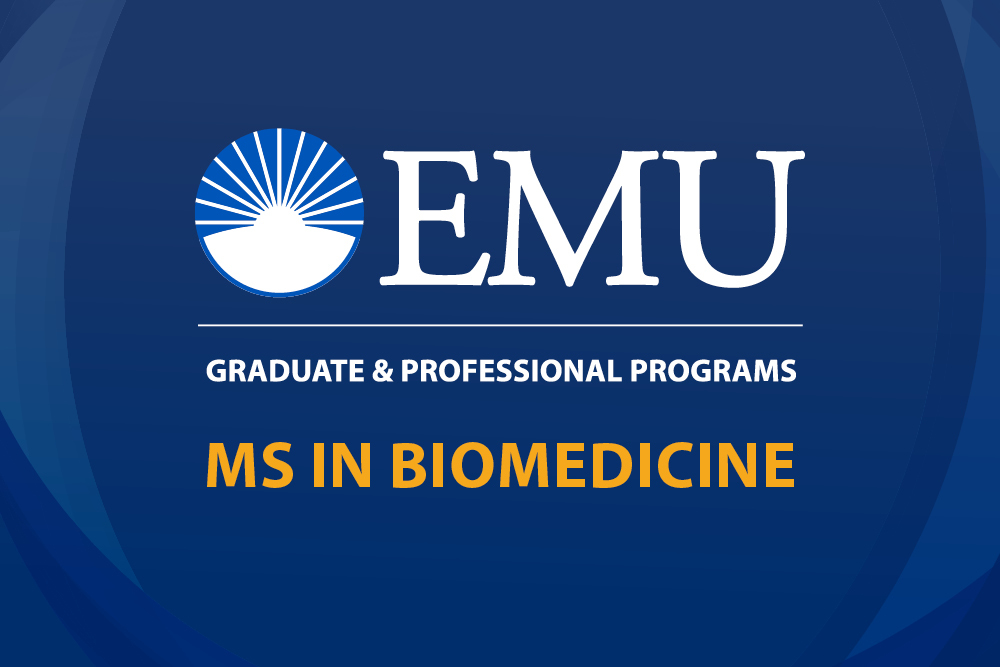On December 5, 12 graduate students in Eastern Mennonite University’s MS in Biomedicine program defended their original research in a virtual oral presentation. Their work ranged from laboratory experiments with cardiac proteins and African clawed frogs to public health inquiries on and off campus.
Since 2013, the master’s in biomedicine program has helped graduates prepare for careers as health professionals. The research component is just one unique curricular offering. Students also benefit from a unique approach to cadaver dissection, which many alumni say has provided optimal preparation and a strong background for the rigors of medical school. Several articulation agreements with professional health schools enhance opportunities to matriculate and continue with career goals.
Each oral defense is evaluated by professors in the MS in biomedicine program, committee members, other faculty and other graduate students.
The research component brings graduate students into mentoring relationships with faculty, alumni and other professionals across many disciplines. Committee members for this round of research projects included Doug Graber Neufeld, professor of biology; Daniel Showalter, professor of mathematics; Jeff Copeland, professor of biology; Scott Barge, vice president of institutional effectiveness; Kristopher Schmidt, professor of biology; Ryan Thompson, director of the psychology program; and Tara Kishbaugh, director of the biomedicine program.
Master’s candidates and their research topics include:
Josephine Awotoye: Predictors of not having a primary care provider in the United States: a cross sectional analysis of the 2018 behavioral risk factor surveillance system;
Mecca Baker: Direct and indirect regulation of cell cycle genes by HLH-25 in Caenorhabditis elegans;
Luz Contreras: Health literacy and demographics in Spanish speakers in Harrisonburg, Virginia: a two-part survey questionnaire with self-reported sections;
Cesar Corona Gutierrez: Which neurons play a role in lifespan extension in Drosophila melanogaster;
Jessica Hindle: The effects of nicotine and glyphosate-based herbicide on orofacial cleft;
Carmen Meacham: The effects of progesterone and estrogen on the feminization of Xenopus laevis;
Jennifer Rojas: The effects of electronic cigarette liquids on immunity and lifespan in Caenorhabditis elegans;
Jessica Saunders: Investigating young Black Christians’ attitudes towards medicine in America;
Sukriti Silwal: Effect of bovine milk and NovaMin on the demineralization and remineralization capacity of teeth;
Kristen Snow: analysis of cardiac troponin levels as an indicator of recovery time and myocardial infarction reoccurrence;
Gene St. Val: Influences of transportation, insurance and demographics on DSM-5 cross cutting symptom measures and treatment adherence;
Benjamin Wright: The role of unc-53 in ced-3 mediated apoptosis in Caenorhabditis elegans.

Wonderful to read about this quality program at EMU. EMU’s science offerings have come such a long way since my day as an undergrad in the late 50s and early 60s. Nevertheless I felt pretty well prepared, even then, for grad work at UVA – thanks to some great and dedicated profs. D. Ralph Hostetter comes to mind immediately.
Doing original research is, of course, a central part of graduate education in science. And presenting it orally is key preparation.
Keep up the good work.